Click here and press the right key for the next slide (or swipe left)
also ...
Press the left key to go backwards (or swipe right)
Press n to toggle whether notes are shown (or add '?notes' to the url before the #)
Press m or double tap to slide thumbnails (menu)
Press ? at any time to show the keyboard shortcuts

What is the meaning of ‘Earth’?
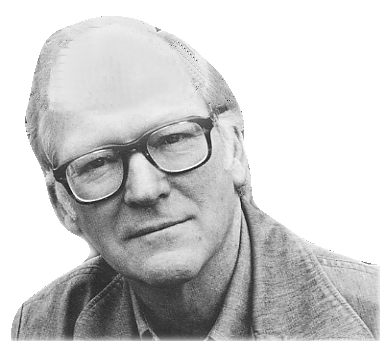
‘entities such as meanings ...
are not of independent interest’
Davidson, 1974 p. 154
Why?
Steve’s Oct 4th, 2018 1.11pm utterance
‘Earth is being warmed by human activity.’
is true because Earth is being warmed by human activity.
Steve’s Oct 4th, 2018 1.11pm utterance
‘Mars is being warmed by human activity.’
is false because Mars is not being warmed by human activity.
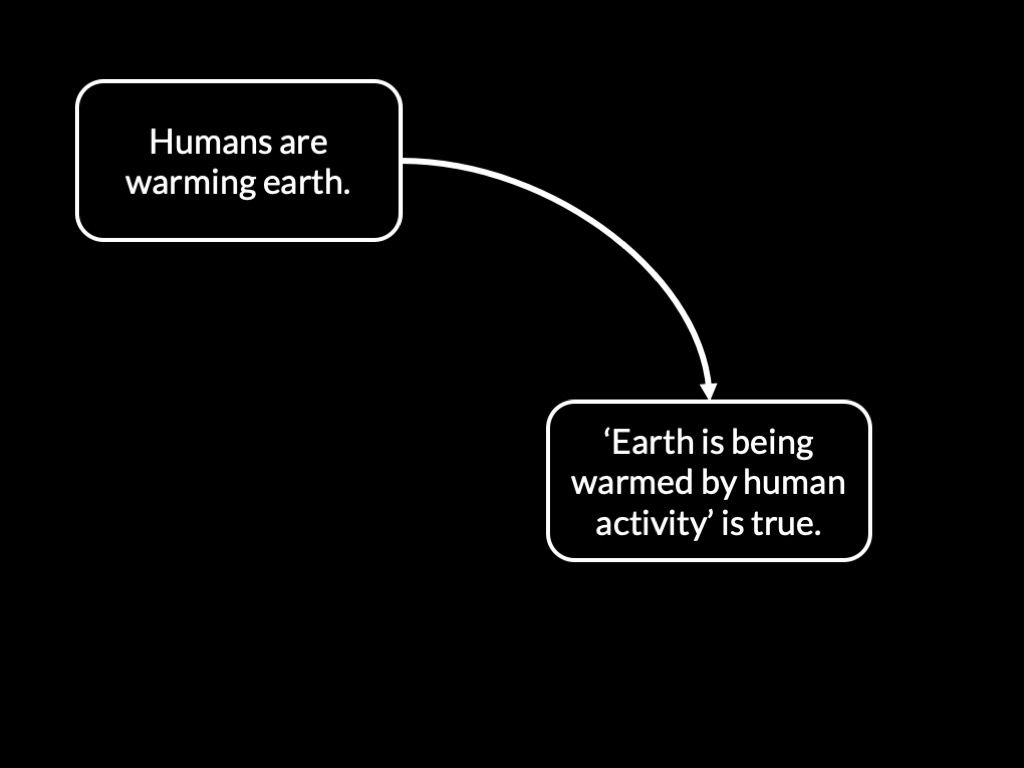
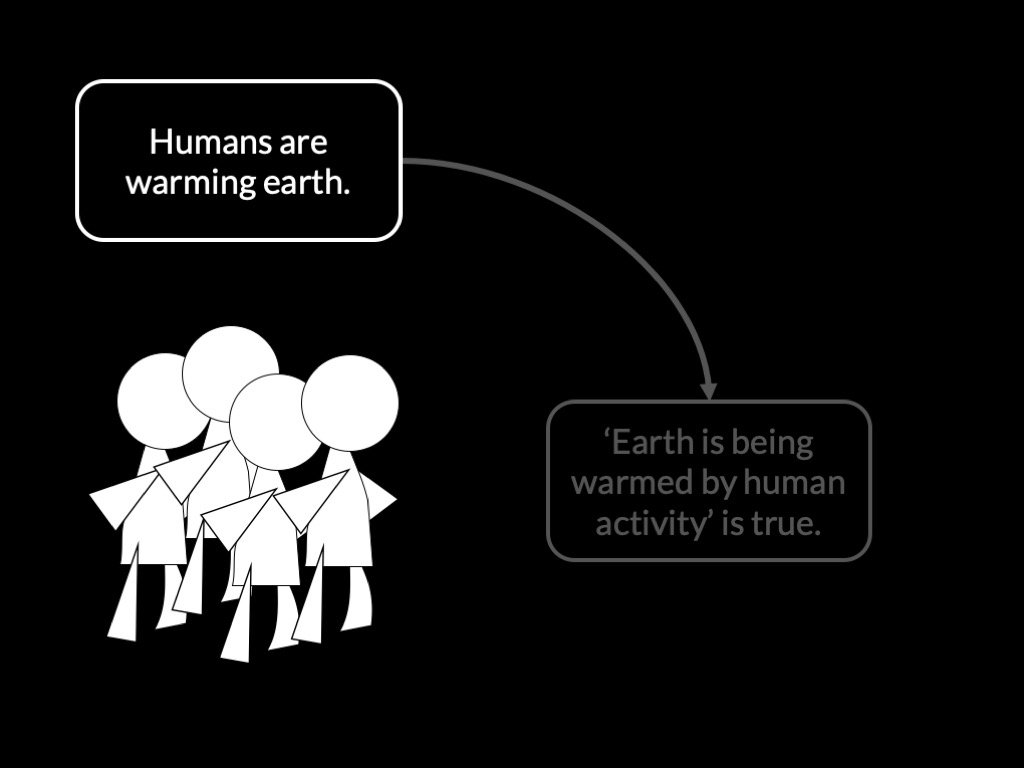
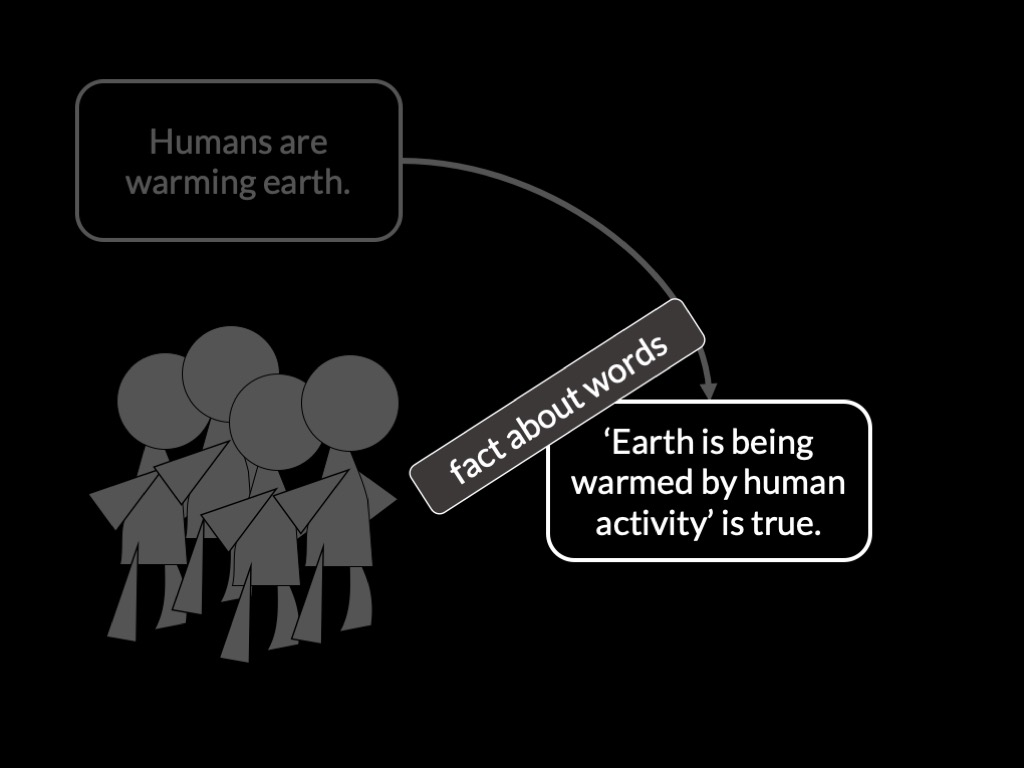
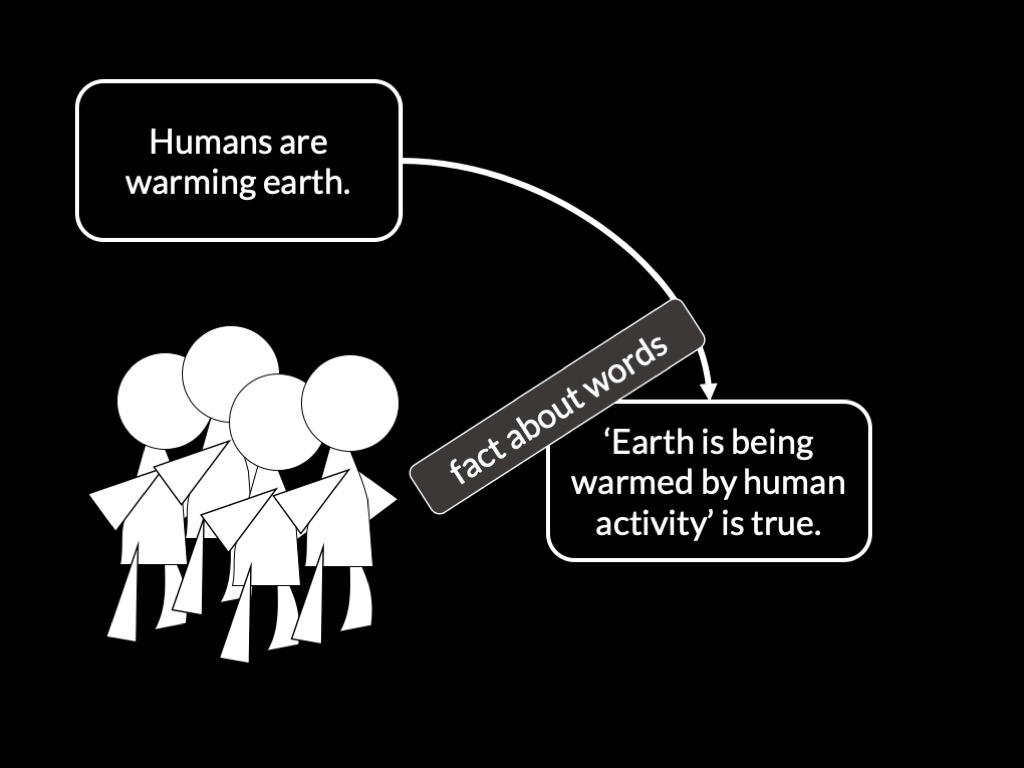
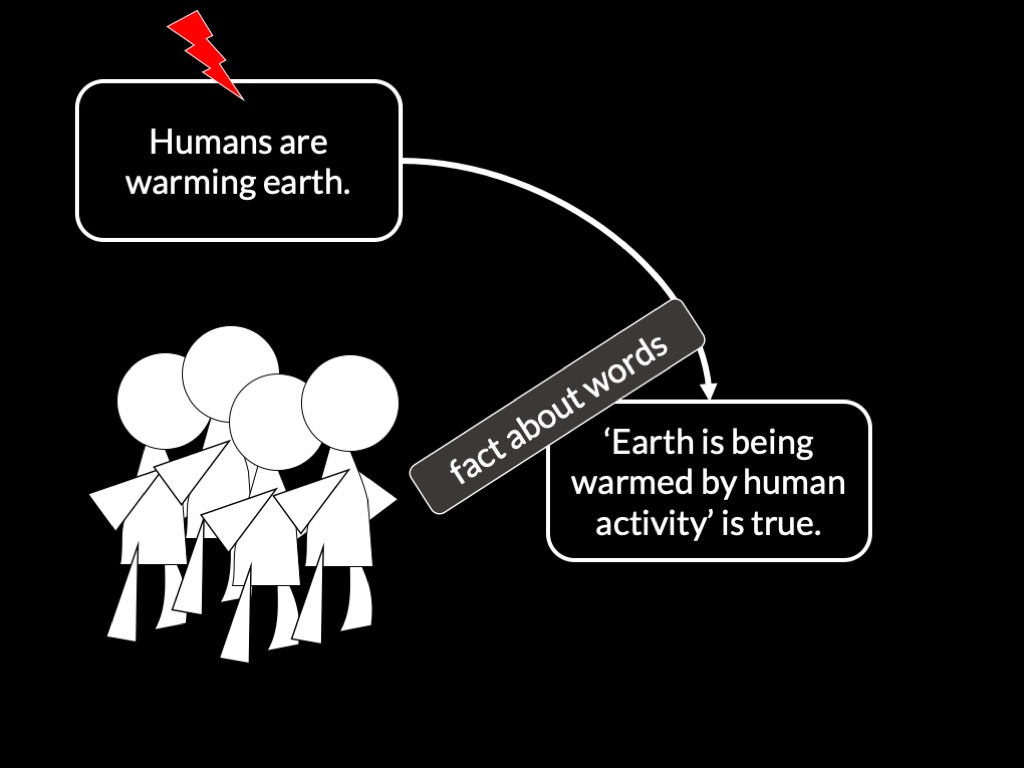
Why?
Steve’s Oct 4th, 2018 1.11pm utterance
‘Earth is being warmed by human activity.’
is true because Earth is being warmed by human activity.
Steve’s Oct 4th, 2018 1.11pm utterance
‘Mars is being warmed by human activity.’
is false because Mars is not being warmed by human activity.

‘entities such as meanings ...
are not of independent interest’
Davidson, 1974 p. 154
Facts in need of explanation:
Steve’s Oct 4th, 2018 1.11pm utterance
‘Earth is being warmed by human activity.’
is true because Earth is being warmed by human activity.
Steve’s Oct 4th, 2018 1.11pm utterance
‘Mars is being warmed by human activity.’
is false because Mars is not being warmed by human activity.
Postulating attributes of words, call them ‘meanings’, will enable us to explain these facts.
What is the meaning of ‘Earth’?
Simple idea: ‘Earth’ means Earth.
Simple idea: ‘Mars’ means Mars.
The meaning of a word is the thing it is used to refer to.
Q1. If we take this view of meanings, can we explain the first fact in need of explanation?
Facts in need of explanation:
Steve’s Oct 4th, 2018 1.11pm utterance
‘Earth is being warmed by human activity.’
is true because Earth is being warmed by human activity.
Steve’s Oct 4th, 2018 1.11pm utterance
‘Mars is being warmed by human activity.’
is false because Mars is not being warmed by human activity.
Postulates about meaning:
‘Earth’ means Earth.
‘Mars’ means Mars.
Principle:
What makes a sentence true somehow depends on what its constituent words mean.
Fact in need of explanation:
Steve’s utterance of ‘Touch your nose’ caused me to touch my nose,
whereas
Steve’s utterance of ‘Touch your ear’ caused me to touch my ear.
Steve knew that uttering ‘touch your nose’ would cause you to touch your nose (and not your ear).
Postulates about meaning:
???
Principles:
???
Meaning is reference.
[the formal question] What kind of things are meanings?
[the mapping question] In virtue of what does a given word have a particular meaning?
[the linking question] What links the mind and actions of a particular language user to the facts about meaning?
Method:
1. Identify a fact which stands in need of explanation.
2. Show that postulating some attribute of words can, together with some principles, provide a candidate explanation of the fact.
Terminology: label the attribute ‘meaning’.
General point:
If you are going to postulate meanings (or referents, or senses, or ...), make sure, minimally, that
you have identified a fact, or some facts, which stand in need of explanation
and that
the meanings can explain the facts.
What is the meaning of ‘Earth’?
Simple idea: ‘Earth’ means Earth.
Simple idea: ‘Mars’ means Mars.
The meaning of a word is the thing it is used to refer to.
Q1. If we take this view of meanings, can we explain the first fact in need of explanation?
Q2. Is there anything meanings are needed to explain which we cannot explain if we take this view of them?

Meaning Isn’t (Only) Reference
What is the meaning of ‘Earth’?
Simple idea: ‘Earth’ means Earth.
The meaning of an utterance of a word is the thing it refers to.
Q1. If we take this view of meanings, can we explain the first fact in need of explanation?
Q2. Is there anything meanings are needed to explain which we cannot explain if we take this view of them?

Siegel & Shuster, 1939 (Issue 1)
Lois knows that ‘Superman is superman’ is true.
Lois does not know that ‘Clarke Kent is superman’ is true.
A Simple Observation
1. ‘Superman’ means Superman.
2. ‘Clarke Kent’ means Clarke Kent.
but:
3. Superman is Clarke Kent
therefore (from 2 & 3):
4. ‘Clarke Kent’ means Superman.
therefore (from 1 & 4):
5. ‘Clarke Kent’ and ‘Superman’ do not differ in meaning.
Fact in need of explanation:
Lois knows that ‘Superman is superman’ is true;
but
Lois does not know that ‘Clarke Kent is superman’ is true.
Postulates about meaning:
‘Superman’ means Superman.
‘Clarke Kent’ means Superman.
Principle:
What makes a sentence true somehow depends on what its constituent words mean.
Contrast ‘Superman is Superman’ with ‘Clarke Kent is Superman’
ftbe: Lois may know that one is true but not that the other is.
idea: This difference is due to some difference in the meanings of the words ‘Superman’ and ‘Clarke Kent’.
There could be no such difference if the meaning of a word were merely the thing it refers to.
Conclusion: the meaning of a word is not, or not only, the thing it refers to.
What is the meaning of ‘Earth’?
Simple idea: ‘Earth’ means Earth.
The meaning of an utterance of a word is the thing it refers to.
Q1. If we take this view of meanings, can we explain the first fact fact in need of explanation?
Q2. Is there anything meanings are needed to explain which we cannot explain if we take this view of them?

conclusion

‘entities such as meanings ...
are not of independent interest’
Davidson, 1974 p. 154

conclusion
Two facts stand in need of explanation.
Facts in need of explanation:
Steve’s Oct 4th, 2018 1.11pm utterance
‘Earth is being warmed by human activity.’
is true because Earth is being warmed by human activity.
Steve’s Oct 4th, 2018 1.11pm utterance
‘Mars is being warmed by human activity.’
is false because Mars is not being warmed by human activity.
Fact in need of explanation:
Lois knows that ‘Superman is superman’ is true;
but
Lois does not know that ‘Clarke Kent is superman’ is true.

conclusion
Two facts stand in need of explanation.
The simple idea that meaning is reference might enable us to explain the first kind of fact, but probably not the second.
If postulating meanings is supposed to enable us to explain both facts, meaning is not, or not only, reference.

Sentences vs Utterances
‘You have to turn your headlamps on
when it’s raining in Sweden.’
‘Dogs must be carried.’ / ‘Shoes must be worn.’
‘This recently became my favourite new song.’
‘the core of a sentence’s meaning is its truth condition; that is, the property of a sentence which, together with the world, makes it true or false.’
Devitt and Sterelny, 1999 p. 11
But what are utterances?
sentence
Is timeless.
Can be uttered by different people.
Is a structure of words.
Cannot be true or false (strictly speaking).
utterance
Has a date.
Has a particular utterer or utterers.
Is a structure of events.
Can be true or false.